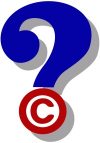Dear Doc:
It’s a year into the pandemic, and it seems that most “information workers” are working virtually, while most “essential workers” are still bravely showing up every day. Apart from the unfairness in that, and the fact that if we had all just locked down for several weeks at the start we could have avoided so many infections and deaths, what are the rules that should apply to working virtually these days?
Signed,
Still Holed Up in the Spare Bedroom
Dear Hermit:
It took the American Bar Association (ABA) until March 10, 2021, to issue a formal opinion about a lawyer’s responsibilities when working virtually. This, despite the fact that the Doc has been doing it since 1991, but then, the ABA has never exactly been a cutting-edge organization when it comes to…well, almost any change. The opinion explains a lawyer’s (and by extension, almost any professional’s) responsibilities in terms of the ethical rules of practice (and no wisecracks about legal ethics and oxymorons!)
The first, and most important rules deal with competence, diligence, and communication. That is, the virtual professional must do her job well, thoroughly, and must inform her client of what she is doing, even if face-to-face meetings are not possible. Seems like common sense, but then, common sense is just not that common these days, eh?
The second rule the ABA cites is confidentiality. In our virtual world, where the Internet spreads information (and misinformation) at the speed of light, extreme care is required to keep things private. The Doc always says, “Think and look before pressing SEND.” That applies double these days. In addition, a discussion about encryption and the use of some software and not others may be in order. In the Doc’s view, programs that feature “end-to-end” encryption (such as Apple’s Messages and FaceTime) are preferable to apps that route every conversation through servers in China. On that score, if you use Zoom (and who doesn’t???) you have the option to specify which countries your data will travel through. Set it up accordingly. Another important issue arises when working from home. Just leaving documents lying about may compromise confidentiality, so by all means, clean up your desk and clear the printer tray.
The last major rule cited by the ABA is supervision of subordinates. Just because folks are not in the same physical office space does not relieve senior personnel from their obligation to properly supervise both junior professionals and support staff. That may be more difficult from a distance, but doing so ensures that those other important rules are not ignored or broken.
When it comes to technology, the ABA makes some pretty smart recommendations, “[L]awyers should be diligent in installing any security-related updates and using strong passwords, antivirus software, and encryption. When connecting over Wi-Fi, lawyers should ensure that the routers are secure and should consider using virtual private networks (VPNs)”. The Doc does not know very many lawyers who are competent to do these things, so it is essential that they enlist the aid of subordinates and consultants (or their own teenage children and grandkids) to help them with these obligations.
The ABA particularly set out cautionary messages about the use of cloud services for document and file storage and sharing, virtual meeting services, and smart devices (which may listen to what you say and record or transmit that information without your knowledge).
Finally, the ABA recommends that if a professional is not in her usual office, a sign be posted (and the Doc says, do it on your website too) saying that meetings are being handled virtually and by appointment only.
The Doc thinks that the world may finally be catching up with his style of virtual practice (it only took 30 years!) and that is a good thing. Even after the immediate threat from this pandemic has been contained, it is likely that many of the old customs of working long hours in professional offices (what the Doc calls “prairie dog farms”) will be obsolete (or at least relaxed). For many years now, Patent Examiners at the United States Patent and Trademark Office have been working from home, and sharing desk space when they need to come to the actual Patent Office (a practice known as “hoteling”). Many of us will now experience the same work life. Just remind your cat that she is not the star of your Zoom meetings, and everything will work out just fine.
Want to have a virtual meeting with a real IP attorney? Send an email to an attorney at LW&H. They’re desperate for human contact and would love to assist you with your legal needs.
Until next month,
The “Doc”
— Lawrence Husick, Esq.


